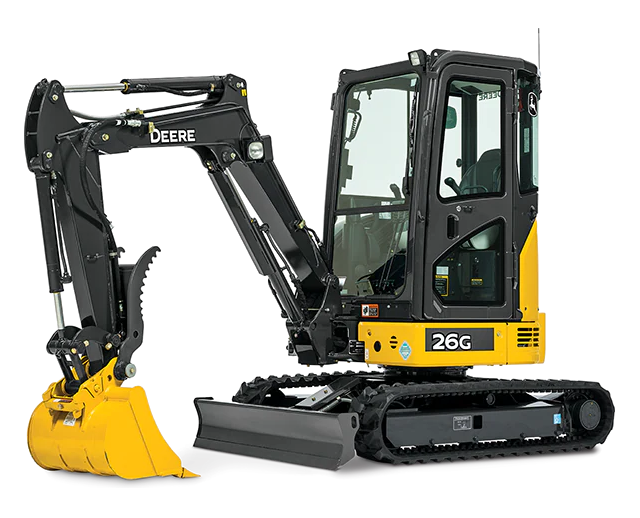Heavy Equipment Rental: Big Machinery for Any Construction Project
Heavy Equipment Rental: Big Machinery for Any Construction Project
Blog Article
Optimize Your Budget by Comprehending the Expenses Related To Construction Equipment Services
Comprehending the complete extent of prices linked with building equipment rentals is crucial for maximizing your budget. What techniques can be utilized to properly handle these costs and make certain a more effective rental experience?
Introduction of Rental Costs
When taking into consideration building and construction devices rentals, recognizing the associated prices is vital for efficient budgeting and job preparation. Rental expenses can vary substantially based upon a number of variables, consisting of tools kind, duration of leasing, and location. The preliminary rental charge usually reflects the equipment's market demand and its linked functional capacities, influencing the total expense.
In addition to the base rental price, ancillary expenses may emerge, such as transport costs, gas additional charges, and upkeep fees. It is vital to account for these additional costs to properly examine the complete price of renting out tools. Furthermore, the rental duration can affect pricing; longer services might get approved for reduced prices, while short-term services may sustain higher everyday costs.

Break Down of Rental Prices
A thorough understanding of rental rates is essential for contractors and task managers intending to maximize their spending plans. Rental prices for building equipment typically contain several components, consisting of base rates, time-based charges, and use charges.
Base prices are the core fees connected with the leasing of the devices, often figured out by the kind and dimension of the equipment. These rates can vary considerably, influenced by factors such as tools need, accessibility, and regional market fads. Time-based costs, which might be daily, weekly, or monthly, serve to accommodate various job timelines and rental durations.
In addition, rental prices might include use fees, which are relevant when equipment is used beyond a specified threshold, making certain that the rental firm can account for deterioration. Seasonal demand variations can likewise influence rental rates, with peak construction periods usually commanding higher costs.
In addition, comprehending the rental firm's policies relating to upkeep and insurance coverage can give additional insight into the general cost structure. By examining these parts, service providers can make educated choices, ensuring the selection of rental equipment lines up with both job requirements and budget constraints.
Added Fees to Consider
Recognizing the details of added costs is important for specialists to manage their total leasing costs effectively. Beyond the conventional rental prices, various extra fees can considerably affect the overall cost of tools leasing. These fees usually include distribution and pickup charges, which can differ based on range and logistics associated with transferring the tools to and from the job website.
Moreover, some rental firms might enforce fuel additional charges if the tools is returned with much less gas than when rented out. It is also necessary to recognize possible cleaning charges, especially for specialized devices that requires detailed upkeep after usage.

Completely assessing the rental contract and clarifying these additional costs in advance can assist service providers ensure and prevent unanticipated costs that budget plans stay intact throughout the task lifecycle.
Maintenance and Repair Service Expenses
Regular upkeep and repair work expenditures are typically ignored factors that can substantially affect the overall price of building and construction tools services. When renting tools, it is important to take into consideration not only the rental costs however additionally the potential prices related to keeping the equipment in optimal operating condition.
Several rental companies include basic maintenance as part of the rental agreement; nevertheless, more unexpected breakdowns or extensive repair work can result in additional expenditures. It's necessary to assess the rental browse around here contract thoroughly to recognize what upkeep solutions are covered and what responsibilities drop on the tenant.
Additionally, equipment that is not properly maintained can bring about inefficiencies on the work site, potentially raising and causing hold-ups job expenses. To great site mitigate these risks, it is advisable to conduct normal inspections and keep open interaction with the rental supplier relating to any type of issues that develop throughout usage.
Insurance and Liability Prices
Insurance coverage and responsibility prices are essential elements that can significantly impact the general expense of building devices rentals (equipment rental company). These expenses ensure that both the rental business and the customer are safeguarded from potential economic losses arising from mishaps, damage, or theft throughout the rental duration

Additionally, customers should be aware of any deductibles or exclusions in the insurance coverage, as these can impact potential out-of-pocket expenses. Recognizing the terms and conditions of any type of insurance policy coverage is vital to prevent unforeseen expenses. Inevitably, budgeting for insurance coverage and responsibility expenditures can aid make certain a smoother rental experience and safeguard versus economic dangers related to building tasks.
Verdict
In final thought, a detailed understanding of the prices linked with building and construction devices rentals is important for effective spending plan administration. Ultimately, educated decision-making pertaining to devices rentals adds to the general success of construction undertakings.
Rental prices can vary considerably based on numerous aspects, this article including tools type, period of leasing, and location (scissor lift rental). The rental period can affect pricing; longer services may certify for affordable prices, while short-term services may sustain higher everyday charges
By conducting complete research study and involving with reliable rental business, specialists can successfully navigate the intricacies of rental rates, eventually optimizing their financial sources.
Past the conventional rental prices, various auxiliary charges can dramatically affect the complete cost of devices service. Rental companies typically give responsibility insurance policy that covers injuries to 3rd parties or damage to property, while devices damages insurance can cover the price of repair services or substitute if the rented devices is damaged.
Report this page